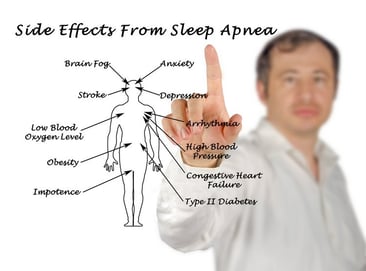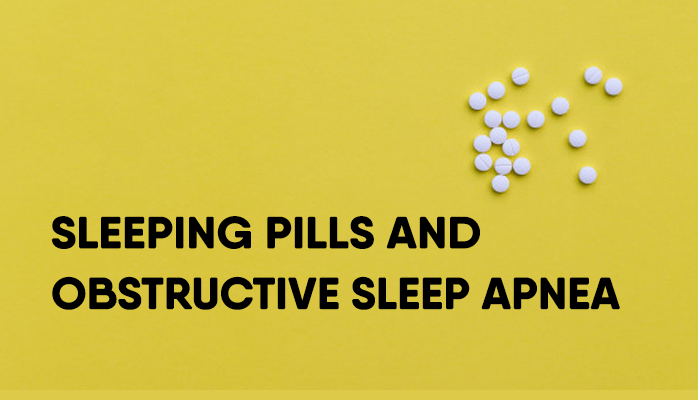What are sleep medications?
Sleeping medications are known as sedative hypnotics. They relax the mind and body in order to help promote sleep. They are prescribed to people who have trouble falling asleep, and/or staying asleep, such as in the case of insomniacs.
Sleeping medications can be:
- Pills like ambien, Klonopin, etc.
- Over the counter aids like Benadryl, Tylenol-PM, and Advil-PM
- Side effects of antihistamine, and antidepressants
For insomniacs they can feel like a lifeline, but they also come with hidden dangers. Most notable, they are not a reasonable solution for people with untreated obstructive sleep apnea. In the words of sleep specialist Dr. Thomas Winkler, “For my patients with untreated sleep apnea, I tell them [taking sleeping pills] is a bad idea.”
Why sleeping meds are harmful in obstructive sleep apnea
While sleeping pills relax the body to help us sleep, they also can cause relaxation in the back of the throat, which can serve as an instigator for inciting sleep apnea for people at risk, and make untreated sleep apnea worse. Sleep apnea is already a complication of naturally over-relaxed muscles. By purposely doing it, one would be worsening their case of sleep apnea.
What causes obstructive sleep apnea

Obstructive sleep apnea is caused when tissues and breathing muscles in back of the throat relax, causing the back of the throat to collapse. Then the soft palate, back of tongue, tonsils, etc. block the airway and breathing ceases until the body is roused from sleep to resume breathing.
You can see a visual depiction of sleep apnea here.
Sleeping medications can assist in the relaxation of the throat muscles that can worsen/cause obstructive sleep apnea.
Who is At Risk for Obstructive Sleep Apnea from Sleep Pills
People who are at risk for obstructive sleep apnea already have existing risk factors (listed below) coupled with other sleeping disorders that disrupt sleep cycles, like insomnia and circadian rhythm disorders.
There’s no reason that one can’t suffer from both OSA and other sleeping disorders. Some other risk factors for obstructive sleep apnea are:
- Being overweight or obese
- Having a thick or large neck
- Having smaller airways in your throat, nose or mouth.
- Having enlarged tonsils
- Having a deviated septum
- Having a large tongue
- Having diabetes
- Genetics/family history
- Having certain medical conditions that cause sleep apnea (rare)
- Age/Sex (older men are most common demographic for sleep apnea)
- Sleeping on your back
- Drinking excess alcohol
If you have insomnia and are concerned about taking sleeping medication but feeling desperate to get help with sleeping, contact your healthcare provider or a sleep specialist for further information. You can get started by clicking the orange button below to take a free online sleep test.


